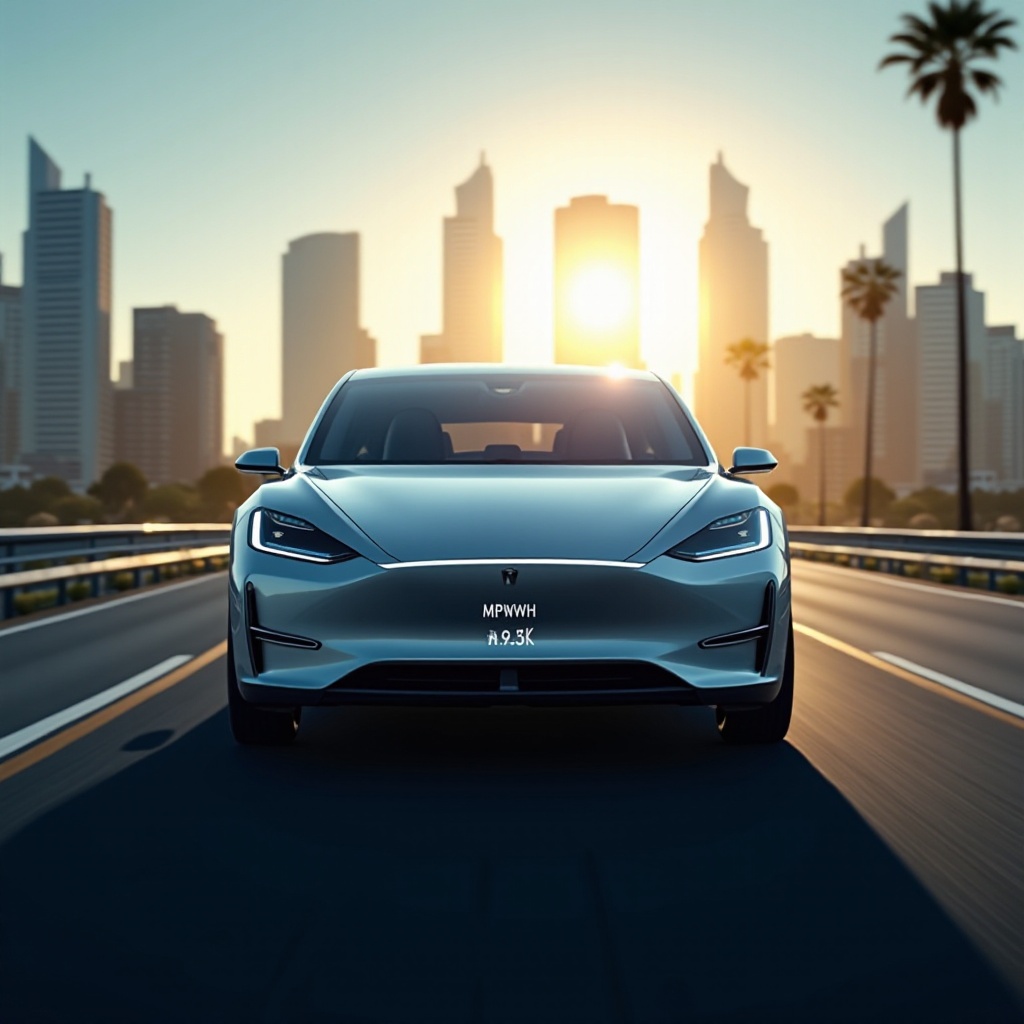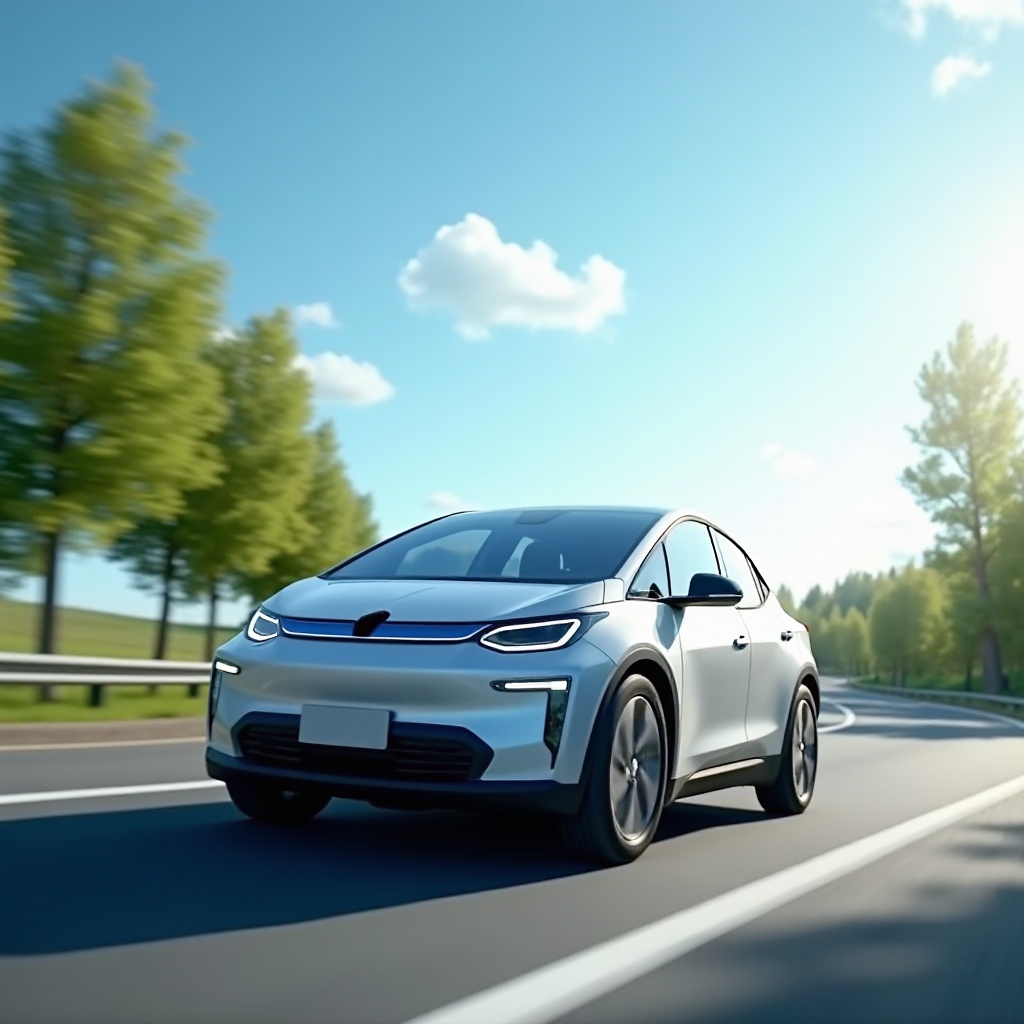Introduction
The world of electric vehicles (EVs) is rapidly expanding, and understanding how to measure their efficiency is crucial for consumers and enthusiasts alike. A key metric in this regard is miles per kilowatt hour (MPkWh), which indicates how far an EV can travel on one kilowatt hour (kWh) of energy. In 2024, advancements in technology continue to boost the MPkWh ratings, making EVs more efficient. This article delves into what MPkWh is, why it matters, and provides insights into the top EVs by MPkWh this year.

What is MPkWh?
MPkWh stands for miles per kilowatt hour. It is a unit of measurement used to determine the efficiency of an electric vehicle. Essentially, it shows how many miles an EV can travel using one kilowatt hour of electricity. To put this into perspective, if an electric vehicle has an MPkWh rating of 4, it can travel four miles on a single kilowatt hour. The higher the MPkWh, the more efficient the vehicle is, resulting in lower electricity usage and cost savings for the driver.
Understanding MPkWh is essential for anyone considering the purchase of an electric vehicle, as it directly impacts the vehicle’s range and overall cost-effectiveness. Various factors influence an EV’s MPkWh, making it an important consideration for both manufacturers and consumers.
Importance of Understanding MPkWh
Grasping the concept of MPkWh is vital because it directly affects your driving experience and expenses. A higher MPkWh means that your electric vehicle can travel further on less energy, which translates to fewer charging stops and lower electricity bills. Additionally, MPkWh is a crucial factor when comparing different electric vehicles. Consumers who understand this metric can make more informed decisions, ensuring they select a vehicle that meets their range and efficiency needs.
Moreover, as governments and organizations push for greener transportation solutions, MPkWh serves as an essential benchmark for evaluating the environmental impact of electric vehicles.

Factors Influencing MPkWh in Electric Vehicles
Several factors impact an electric vehicle’s MPkWh. Understanding these can help you make the most of your EV’s efficiency.
-
Battery Technology: Advances in battery technology play a significant role in improving MPkWh. Higher capacity batteries can store more energy, leading to increased ranges.
-
Vehicle Weight: The lighter the vehicle, the less energy it requires to move. Manufacturers focus on using advanced materials like carbon fiber and aluminum to reduce the weight of EVs without compromising safety.
-
Aerodynamics: The design of the vehicle affects air resistance. Sleeker designs with better aerodynamics reduce drag, allowing the vehicle to travel more efficiently.
-
Driving Conditions: Factors like traffic, terrain, and weather conditions affect MPkWh. For example, driving in hilly areas or in extreme cold can lower MPkWh due to increased energy consumption.
-
Driving Habits: Aggressive driving with rapid acceleration and braking reduces efficiency. Smooth and steady driving can maximize MPkWh.
-
Tire Pressure: Properly inflated tires reduce rolling resistance, which can positively impact an EV’s efficiency.
-
Regenerative Braking: This technology recovers energy usually lost during braking and feeds it back into the battery, improving overall efficiency.
How to Measure MPkWh
Measuring MPkWh involves understanding the amount of energy your vehicle uses over a given distance. Here’s how you can measure it:
- Fully Charge Your EV: Start with a fully charged battery.
- Reset the Trip Odometer: This helps to get an accurate measurement of the distance traveled.
- Drive Your Vehicle: Note the distance you cover until the battery is depleted to a certain level.
- Check the Energy Used: Most EVs have a display showing the energy consumption in kWh.
- Calculate MPkWh: Divide the distance traveled by the energy consumed in kWh.
For example, if you travel 60 miles and consume 15 kWh, your MPkWh is 4 (60 miles / 15 kWh = 4 MPkWh).
Top Electric Vehicles by MPkWh in 2024
Transitioning from understanding MPkWh and how to measure it, it is important to recognize EVs that excel in this metric. As of 2024, several electric vehicles stand out for their impressive MPkWh ratings:
- Tesla Model 3: Known for its efficiency, the Tesla Model 3 leads with an average of 4.5 MPkWh.
- Nissan Leaf: A popular choice among consumers, the Nissan Leaf boasts around 4.2 MPkWh.
- Hyundai Kona Electric: This compact SUV offers about 4 MPkWh, making it both practical and efficient.
- Chevrolet Bolt EV: With an MPkWh of approximately 3.8, the Bolt EV is a solid contender in the market.
- Ford Mustang Mach-E: Combining style with efficiency, this model provides around 3.5 MPkWh.
These vehicles illustrate the current advancements in electric vehicle technology, promising a balance of efficiency, range, and performance.
Tips for Maximizing Your Vehicle’s MPkWh
For those looking to maximize their EV’s efficiency, there are several practical tips to consider:
- Maintain Proper Tire Pressure: Regularly check and maintain your tire pressure to reduce rolling resistance.
- Drive Smoothly: Avoiding sudden accelerations and abrupt stops can improve your vehicle’s efficiency.
- Use Regenerative Braking: Take advantage of regenerative braking to recover energy.
- Limit Use of Air Conditioning and Heating: These systems consume considerable energy. Use them sparingly to extend your range.
- Reduce Excess Weight: Remove unnecessary items from your vehicle to decrease the load and improve efficiency.
- Optimize Route Planning: Plan trips to avoid traffic and choose the most efficient routes.

Future Innovations and Their Impact on MPkWh
Looking ahead, future innovations promise to further enhance the MPkWh of electric vehicles. Developments in battery technology, such as solid-state batteries, are expected to offer higher energy densities and longer lifespans. Moreover, advancements in artificial intelligence and machine learning can optimize driving patterns and energy use.
Additionally, improvements in vehicle design and materials will contribute to lighter, more aerodynamic models. As charging infrastructure continues to expand and evolve, the overall efficiency and convenience of electric vehicles will only improve, making them an even more attractive option for consumers.
Conclusion
Understanding MPkWh is key for anyone interested in electric vehicles. This metric not only helps gauge the efficiency of an EV but also influences the total cost of ownership. From factors affecting MPkWh to measuring it, and top models in 2024 to tips for maximizing efficiency, this comprehensive guide aims to equip you with the knowledge to make informed decisions and get the most out of your electric vehicle.
Frequently Asked Questions
How is MPkWh calculated?
MPkWh is calculated by dividing the distance traveled (in miles) by the energy consumed (in kilowatt hours). For example, if an EV travels 60 miles using 15 kWh, its MPkWh is 4.
What is a good MPkWh for an electric vehicle?
A good MPkWh for an electric vehicle typically ranges between 3 to 5. Higher values signify better efficiency, meaning the vehicle can travel further on less energy.
How can I improve my electric vehicle’s MPkWh?
Improve your EV’s MPkWh by maintaining proper tire pressure, driving smoothly, using regenerative braking, limiting air conditioning and heating, reducing excess weight, and optimizing route planning.
